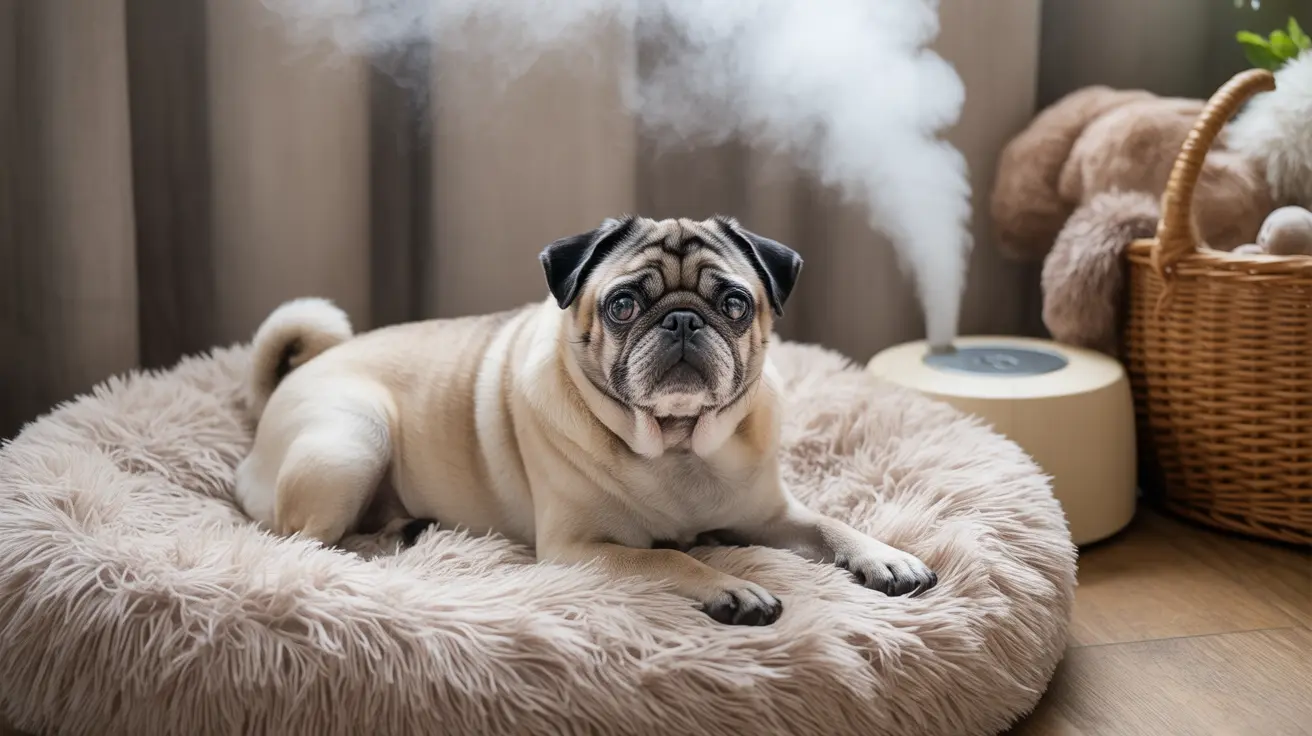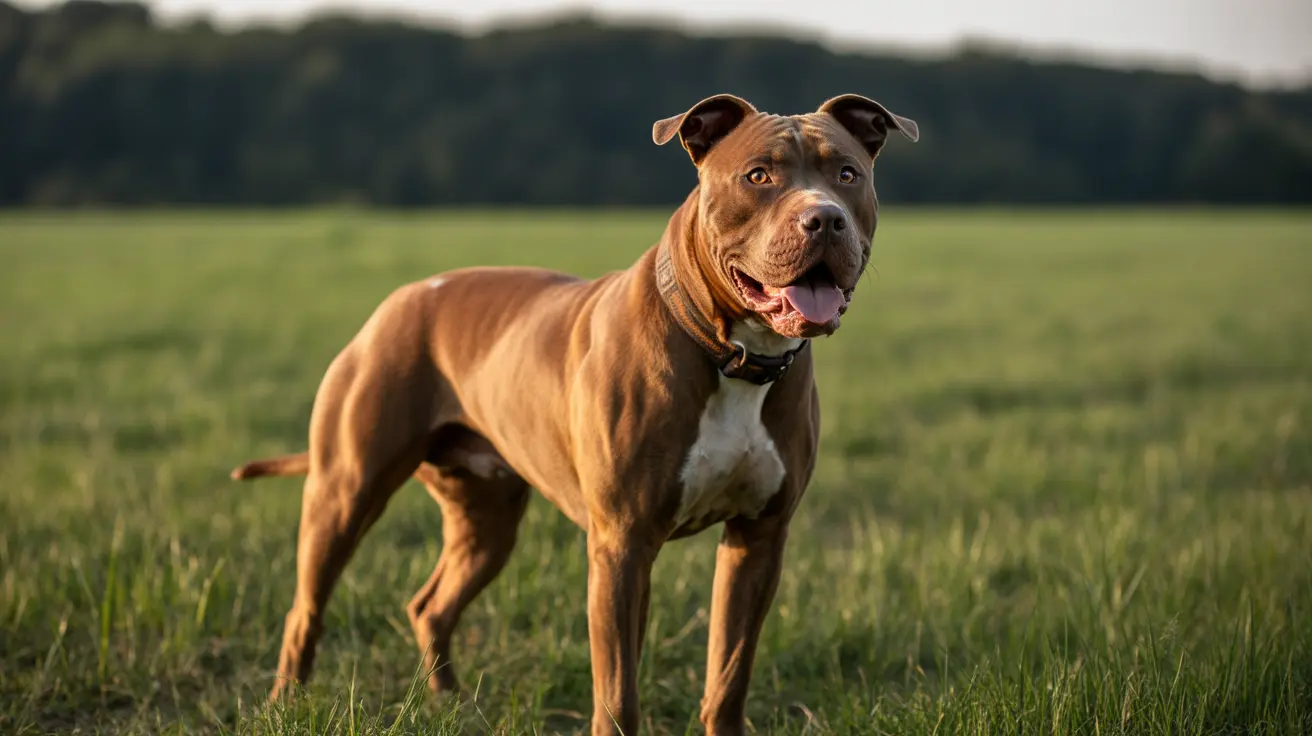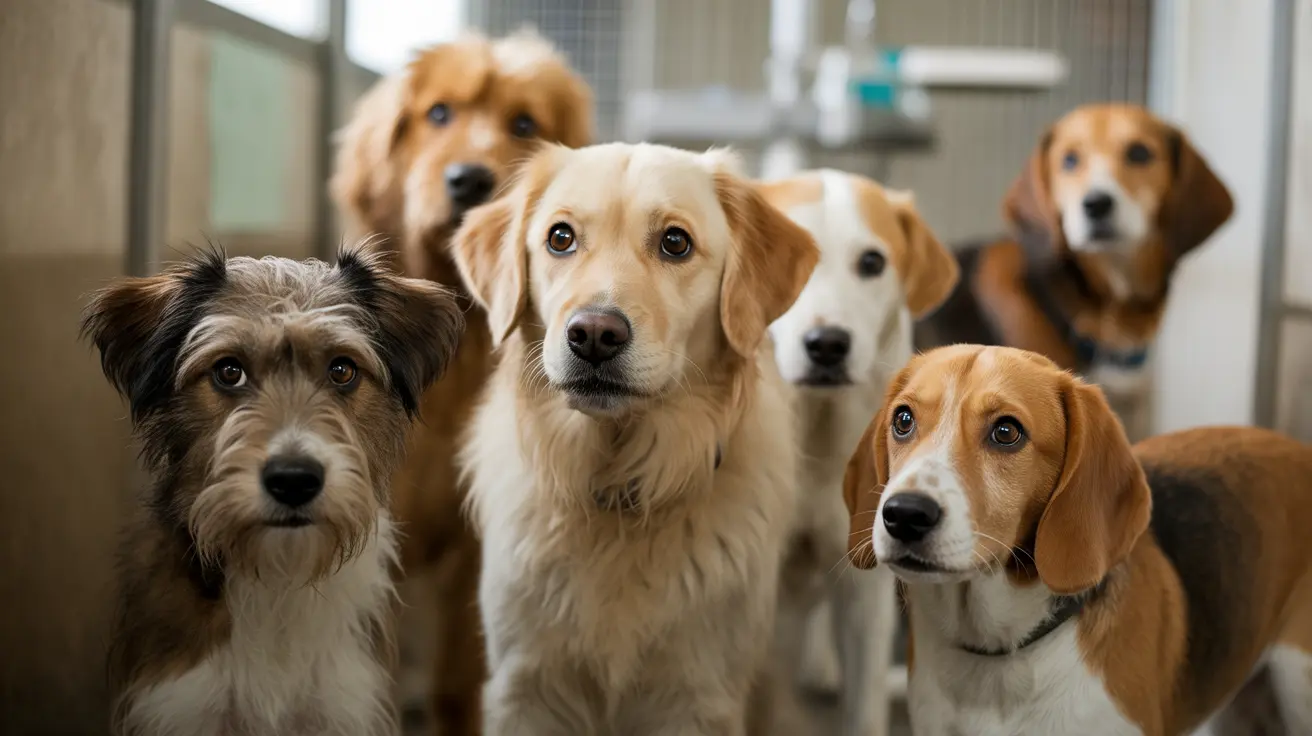How to Care for a Dog with a Cold: Complete Guide to Safe Treatment and Recovery
When your beloved canine companion starts sneezing, coughing, or showing signs of nasal congestion, it's natural to worry and wonder about the best way to help them recover. Understanding how to care for a dog with a cold is essential for every pet owner, as respiratory infections in dogs are common and can range from mild, self-limiting conditions to more serious illnesses requiring veterinary intervention. While dogs cannot catch human cold viruses, they do suffer from their own specific respiratory infections that cause remarkably similar symptoms.
This comprehensive guide will walk you through everything you need to know about identifying, managing, and caring for your dog during a respiratory illness. From recognizing the early warning signs to implementing effective home care strategies, you'll learn how to support your pet's recovery while preventing the spread of infection to other animals in your household. Most importantly, you'll discover when supportive care at home is sufficient and when it's time to seek professional veterinary assistance.
By following evidence-based care protocols and understanding the unique nature of canine respiratory infections, you can help your furry friend recover more comfortably and quickly while maintaining the health of your entire pet family.
Understanding Canine Respiratory Infections vs. Human Colds
One of the most important concepts for dog owners to grasp is that canine respiratory illnesses are fundamentally different from human colds. Dogs cannot catch the human cold virus, and humans cannot catch canine colds due to species-specific viruses. This means it's completely safe for you to be around your dog when you have a human cold or flu, and snuggling with your pet while you're sick poses no hazard to them.
Dogs suffer from what veterinarians call canine infectious respiratory disease complex (CIRD), which involves multiple viruses and bacteria working together to cause cold-like symptoms. The most common culprits include canine adenovirus, canine parainfluenza virus, canine respiratory coronavirus, Bordetella bronchiseptica (which causes kennel cough), and canine influenza virus. These pathogens are entirely different from the viruses that cause human respiratory infections.
Understanding this distinction is crucial because it influences how you approach treatment and prevention. While you don't need to worry about transmitting your cold to your dog or vice versa, you do need to be concerned about your sick dog potentially infecting other dogs in your household or community.
Recognizing Cold Symptoms in Dogs
Identifying the early signs of a respiratory infection in your dog is crucial for providing timely care and preventing complications. Dogs with colds typically exhibit a constellation of symptoms that closely mirror human cold symptoms, though some manifestations are uniquely canine in nature.
The most common symptoms include frequent sneezing, nasal discharge that may be clear or colored, and coughing that often presents as a distinctive dry, honking sound. You may also notice your dog has watery or inflamed eyes, appears lethargic or less energetic than usual, and shows a decreased interest in food. Many dogs with respiratory infections develop a mild fever and may breathe in a more labored or shallow manner than normal.
Pay particular attention to changes in your dog's behavior and energy levels. A normally active dog that suddenly prefers to rest or seems reluctant to engage in usual activities may be fighting off an infection. Similarly, dogs that typically have hearty appetites but suddenly show little interest in their favorite foods should be monitored closely, as loss of appetite often accompanies respiratory illnesses in canines.
Safe Home Care Strategies for Dogs with Colds
When caring for a dog with a cold at home, creating the right environment and routine is essential for supporting their recovery. The foundation of effective home care centers on ensuring your dog gets plenty of rest, which means adjusting their daily routine to accommodate their body's need to fight the infection.
Modify your dog's exercise routine by shortening walks and keeping outdoor activities gentle and brief. While fresh air can be beneficial, avoid strenuous activities that might stress their respiratory system. After any outdoor exposure, especially in wet weather, thoroughly dry your dog to prevent additional stress on their immune system. Keep your pet warm and comfortable, but avoid placing them directly next to heaters or heat sources, as this can cause respiratory irritation and dry out their already sensitive nasal passages.
Creating a comfortable recovery space involves ensuring your dog has access to a quiet, draft-free area where they can rest undisturbed. Maintain good air quality by avoiding strong fragrances, cleaning products, or smoke that might further irritate their respiratory system. Humidified air can provide relief, so consider using a humidifier in the room where your dog spends most of their time.
Maintaining Proper Hydration and Nutrition
Adequate hydration is absolutely crucial when caring for a dog with a cold, as it helps thin mucus secretions and supports the immune system's ability to fight infection. Dogs with respiratory infections may be reluctant to drink their usual amount of water, so you'll need to encourage fluid intake through various strategies.
Consider moistening your dog's dry kibble with warm water or low-sodium broth to increase both palatability and fluid intake. Offering wet food instead of dry during the illness can also boost hydration levels. Some dogs find warm, diluted bone broth appealing when they're feeling under the weather, though always ensure any broth is low in sodium and doesn't contain harmful ingredients like onions or garlic.
Monitor your dog's water consumption carefully. While encouraging drinking is important, excessive water consumption combined with high fever warrants immediate veterinary attention, as this could indicate a more serious condition. Similarly, if your dog refuses to eat or drink for more than 24 hours, professional veterinary care is necessary to prevent dehydration and ensure proper treatment.
Safe Inhalation Therapy for Dogs
Inhalation therapy can provide significant relief for dogs with respiratory congestion, but the method used for dogs differs substantially from human steam inhalation techniques. Never attempt to have your dog breathe steam from a bowl, as this concentrated method can cause burns or respiratory distress.
The safe approach for dogs involves creating a humid environment rather than direct steam exposure. Take your dog into the bathroom and run a hot shower to create steam, allowing them to breathe the humidified air in this open environment. This shower cabin method provides gentle moisture without the risks associated with concentrated steam exposure.
For enhanced therapeutic benefit, you can dissolve a small amount of sea salt in the hot water before creating steam, as the salt can help reduce inflammation in the respiratory tract. Limit these sessions to 10-15 minutes and always supervise your dog throughout the process. Some dogs may find this environment stressful, so discontinue if your pet shows signs of anxiety or distress. Always consult with your veterinarian before beginning any inhalation therapy to ensure it's appropriate for your dog's specific condition.
When to Seek Immediate Veterinary Care
While many canine respiratory infections are mild and self-limiting, resolving within one to two weeks with proper supportive care, certain warning signs indicate the need for immediate professional veterinary attention. Understanding these red flags can be crucial for your dog's health and recovery.
Seek emergency veterinary care if your dog exhibits difficulty breathing, persistent or worsening cough that doesn't improve with rest, severe lethargy where your dog seems unable to engage in any normal activities, or complete loss of appetite lasting more than 24 hours. High fever, especially when accompanied by excessive drinking, requires immediate professional evaluation.
Additional concerning symptoms include colored nasal discharge that becomes thick or yellow-green, labored breathing even at rest, or any signs of respiratory distress such as extended neck positioning or open-mouth breathing. Puppies, senior dogs, immunocompromised animals, and brachycephalic breeds like Bulldogs and Pugs are at higher risk for complications and should receive veterinary evaluation sooner rather than later when showing any respiratory symptoms.
Preventing Infection Spread Among Multiple Pets
If you have multiple dogs in your household, preventing the spread of respiratory infections becomes a critical aspect of care management. Unlike human colds, canine respiratory infections are highly contagious between dogs and can spread rapidly through direct contact, shared items, or contaminated environments.
Immediately isolate the sick dog from other pets in your household to prevent transmission. This means separate sleeping areas, feeding stations, and play spaces until the infected dog has fully recovered. Clean and disinfect all shared items including toys, food bowls, water dishes, and bedding. Pay special attention to frequently touched surfaces and areas where the sick dog has spent time.
Maintain strict hygiene protocols by washing your hands thoroughly after handling the sick dog and before interacting with healthy pets. Consider the timing of walks and outdoor activities to minimize cross-contamination. If you must board dogs or use daycare services, notify the facility about your dog's illness, as most reputable establishments have protocols for managing infectious diseases.
Nutritional Support and Immune System Boosting
Supporting your dog's immune system through proper nutrition can significantly impact their recovery time and comfort level during a respiratory infection. Focus on maintaining their regular, balanced diet while making accommodations for decreased appetite and potential difficulty eating due to nasal congestion.
Warm, easily digestible foods often appeal more to sick dogs than their regular cold kibble. Consider slightly warming wet food or adding warm, low-sodium broth to make meals more enticing. High-quality protein remains important for immune function, so ensure your dog continues to receive adequate nutrition even if their portions are smaller than usual.
While maintaining their regular diet is typically sufficient, some veterinarians may recommend specific supplements to support immune function during illness. However, never introduce new supplements or make significant dietary changes without consulting your veterinarian first, as some supplements can interact with medications or may not be appropriate for all dogs.
Understanding Medication Safety and Veterinary Treatment
One of the most critical aspects of caring for a dog with a cold is understanding what treatments are safe and which ones are potentially dangerous. Human medications should never be given to dogs under any circumstances, as many common cold remedies are toxic to canines and can cause serious harm or death.
Veterinary treatment for canine respiratory infections depends on the severity of symptoms and the specific pathogens involved. Mild cases typically require only supportive care including rest, hydration, and environmental modifications. More severe cases may require prescription antibiotics if bacterial infections are present, cough suppressants to provide comfort, or even hospitalization with intravenous fluids and oxygen therapy for dogs with serious respiratory distress.
Your veterinarian may recommend specific diagnostic tests to identify the exact cause of your dog's symptoms, particularly if the illness is severe or doesn't respond to initial supportive care. These tests help ensure appropriate treatment and can identify potentially serious conditions that require more aggressive intervention.
Long-term Prevention Strategies
Preventing future respiratory infections in your dog involves a combination of vaccination, environmental management, and smart social practices. Keeping your dog current on vaccinations for common respiratory diseases such as kennel cough and canine influenza provides significant protection against the most common and serious infectious agents.
Environmental factors play a crucial role in prevention. Avoid exposing your dog to environments where respiratory infections are more likely to spread, such as overcrowded dog parks during outbreak periods, poorly ventilated boarding facilities, or grooming salons with questionable hygiene practices. When introducing new dogs to your household, implement a two-week quarantine period to ensure they aren't harboring infectious diseases.
Maintain your dog's overall health through proper nutrition, regular exercise, and routine veterinary care, as healthy immune systems are better equipped to fight off infections. Stay informed about respiratory disease outbreaks in your community and adjust your dog's social activities accordingly during high-risk periods.
Frequently Asked Questions
Can my dog catch a cold from me when I'm sick?
No, dogs cannot catch human cold viruses. Canine and human respiratory infections are caused by entirely different, species-specific viruses. It's completely safe to be around your dog when you have a cold or flu, and snuggling with your pet poses no health risk to them.
How long does a typical cold last in dogs?
Most mild canine respiratory infections are self-limiting and resolve within one to two weeks with proper supportive care. However, more severe infections or those affecting vulnerable dogs (puppies, seniors, or immunocompromised animals) may take longer and require veterinary treatment.
Is it safe to give my dog human cold medications?
Absolutely not. Human cold medications should never be given to dogs as they can be toxic and potentially fatal. Many common ingredients in human cold remedies are dangerous for canines. Only use medications specifically prescribed by a veterinarian for your dog's condition.
Should I separate my sick dog from other pets in the house?
Yes, you should isolate sick dogs from other pets to prevent the spread of infection. Canine respiratory infections are highly contagious between dogs through direct contact, shared items, and contaminated environments. Maintain separation until your dog has fully recovered.
When should I take my dog to the veterinarian for cold symptoms?
Seek veterinary care if your dog shows difficulty breathing, persistent or worsening cough, severe lethargy, complete loss of appetite for more than 24 hours, high fever, or colored nasal discharge. Puppies, senior dogs, and brachycephalic breeds should be evaluated sooner when showing any respiratory symptoms.
Can I use a humidifier to help my dog with congestion?
Yes, humidified air can provide relief for dogs with respiratory congestion. You can use a room humidifier or create steam in the bathroom by running a hot shower, allowing your dog to breathe the humidified air in this open environment. Never use direct steam methods that could cause burns.
How can I encourage my sick dog to drink more water?
Moisten dry food with warm water or low-sodium broth, offer wet food instead of dry kibble, and consider providing warm, diluted bone broth. Ensure fresh water is always available and monitor intake carefully. Excessive drinking combined with fever requires immediate veterinary attention.
Conclusion
Caring for a dog with a cold requires a thoughtful balance of supportive home care, careful monitoring, and knowing when professional veterinary intervention is necessary. By understanding that canine respiratory infections are species-specific and cannot be transmitted between humans and dogs, you can focus on providing appropriate care without unnecessary worry about cross-species infection. The key elements of successful home care include ensuring adequate rest, maintaining proper hydration, creating a comfortable recovery environment, and implementing safe therapeutic measures like gentle inhalation therapy.
Remember that while many canine respiratory infections resolve with supportive care, certain warning signs demand immediate veterinary attention. Never attempt to treat your dog with human medications, and always prioritize professional medical guidance when symptoms persist or worsen. By combining preventive measures like proper vaccination and good hygiene practices with attentive care during illness, you can help ensure your dog's respiratory health and quick recovery from cold-like symptoms.






